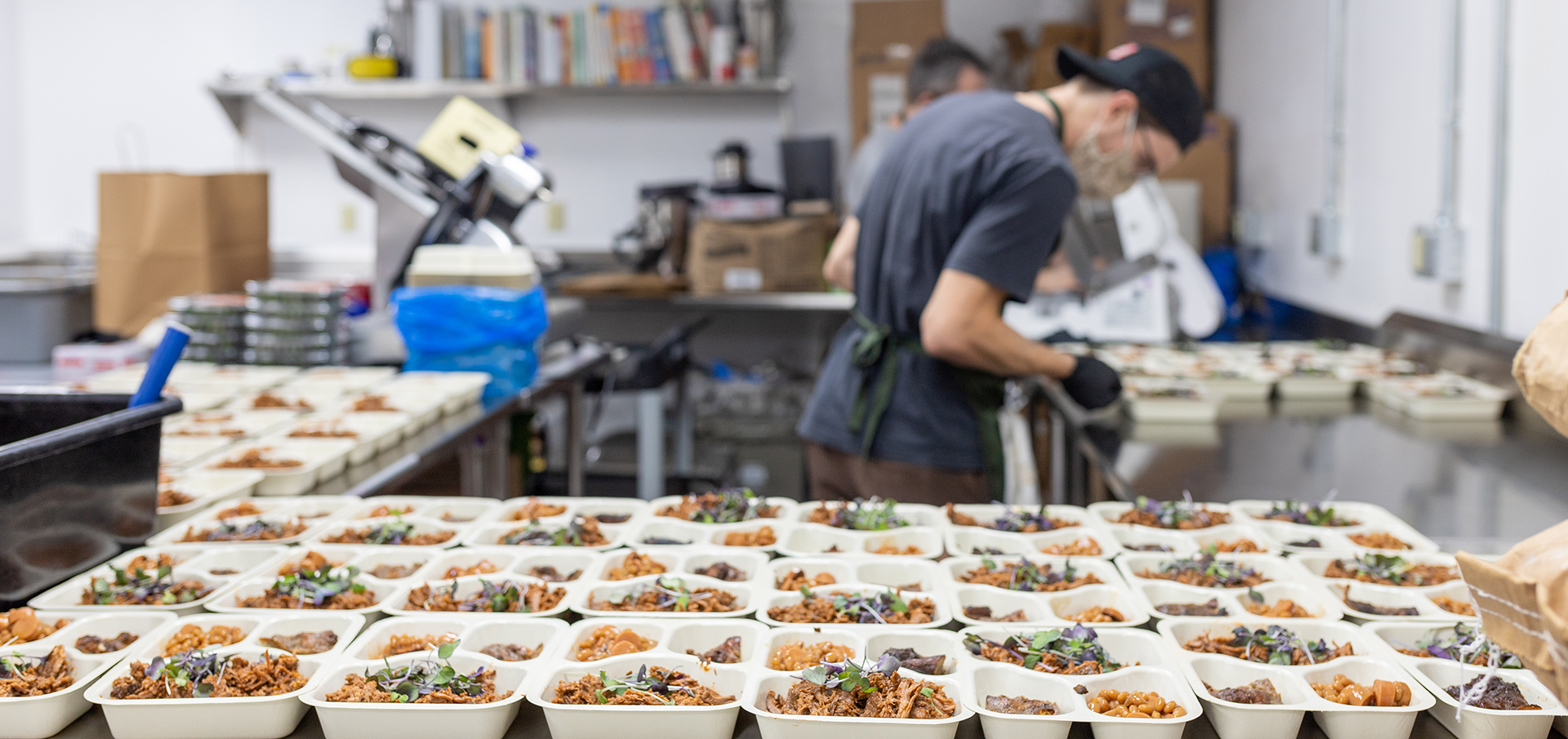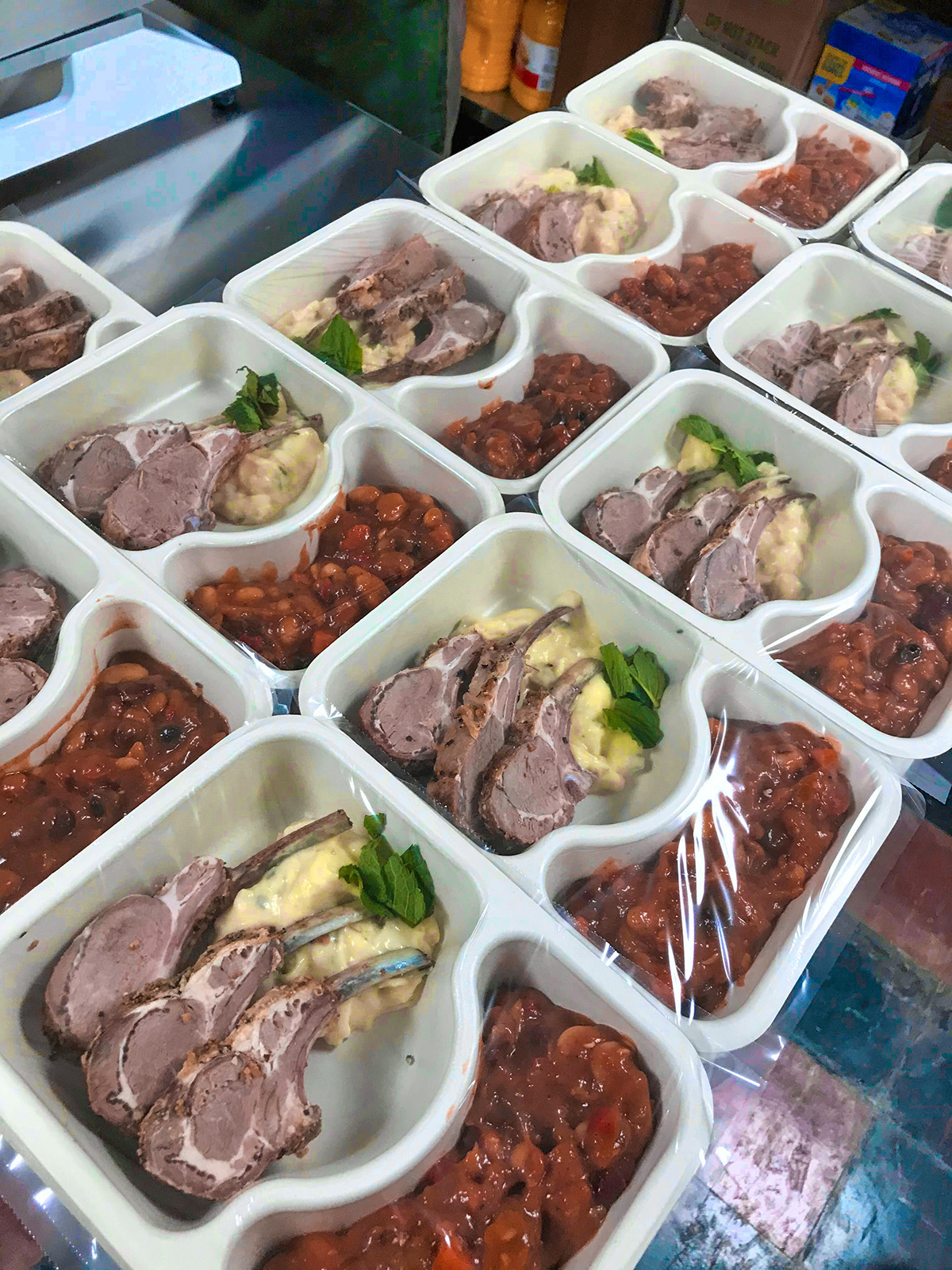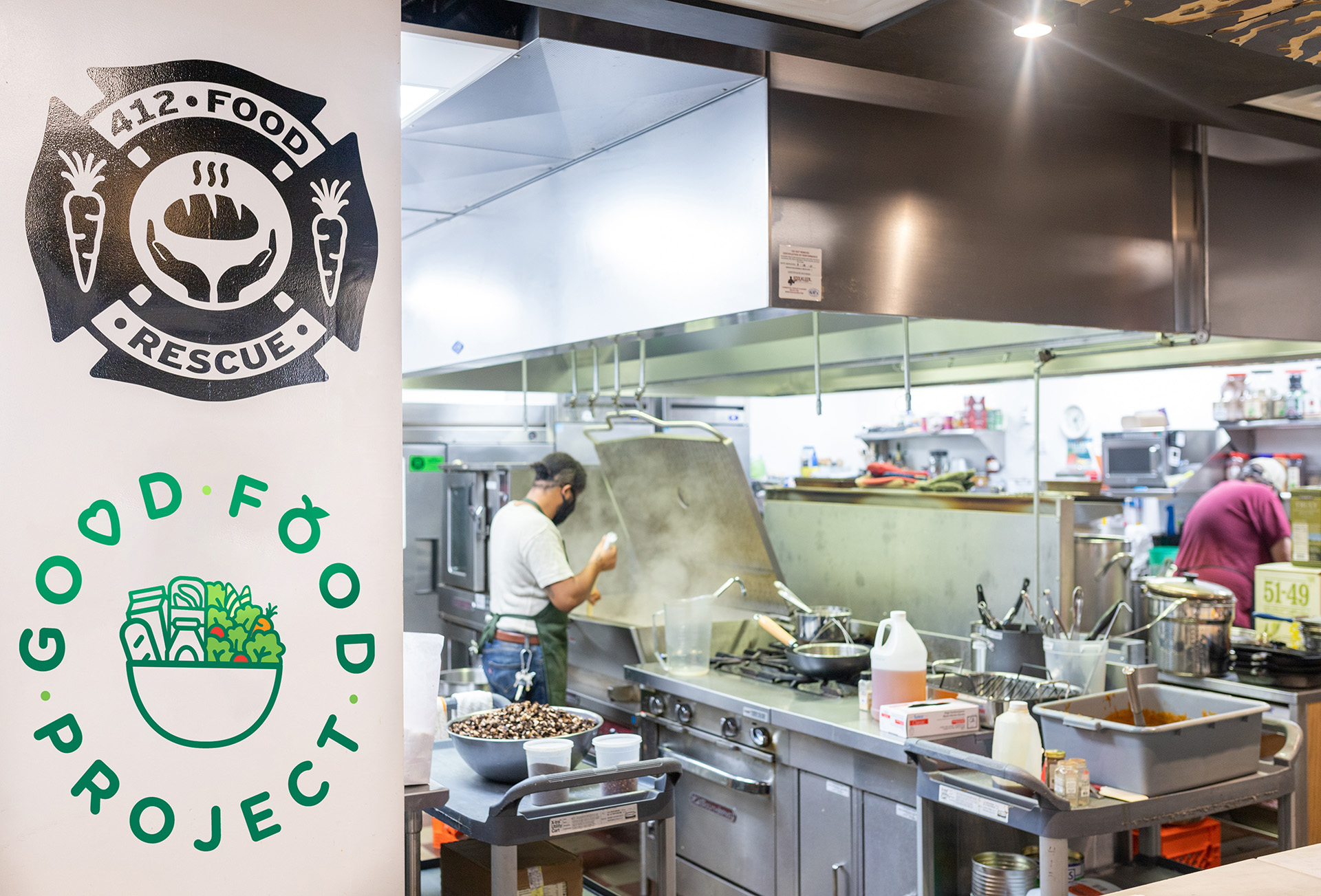
This Kitchen Operates at Only .003% Waste — While Menu-Planning on the Fly
by Liz Fetchin
January 16, 2023
Can a kitchen that serves hundreds of people weekly produce zero waste?
It’s a tall order for any operation, but a 412 Food Rescue kitchen in Millvale is proving that it’s possible. The Good Food Project creates only .003% waste as it transforms rejected but still-good food into meals for food-insecure communities. The feat is all the more impressive considering that the team never knows what ingredients will be delivered to its door.
A typical commercial or institutional kitchen has to meticulously plan out its menus ahead of time to control costs. By contrast, the Good Food Project, launched in 2019, was created specifically to adapt to the unpredictable quantities and types of food rescued by the nonprofit.
A typical delivery to the kitchen might include 100 pounds of zucchini, three cases of cocoa powder in industrial containers, and a pallet of apples. Project Manager Greg Austin must think on his feet, whipping up creative ways to turn these mismatched ingredients into healthy, delicious, and comforting meals.
In the past year, the project has received more than 120,000 pounds of food and produced more than 32,000 meals. Currently making 1,000 meals a week, at only about eight cents per meal, it stabilizes and uses every ounce of donated food that it can (with the remainder composted through Pittsburgh-based Zero Waste Wrangler and AgRecycle) and has basically no need for other ingredients — in fact, the kitchen has not purchased any food since May 2020.
Using Leanpath technology, the Good Food Project also meticulously tracks its waste. Last year, it set a goal of .05% waste, only to surpass it by averaging .003%. At a time when companies and institutions are motivated to greenwash their images with exaggerated “zero-waste” claims (and even international accreditors consider 10% landfill waste to be “zero-waste”), this homegrown kitchen is showing that true zero is within reach, if we’re willing to reimagine how we work with what we have.



Leave A Comment